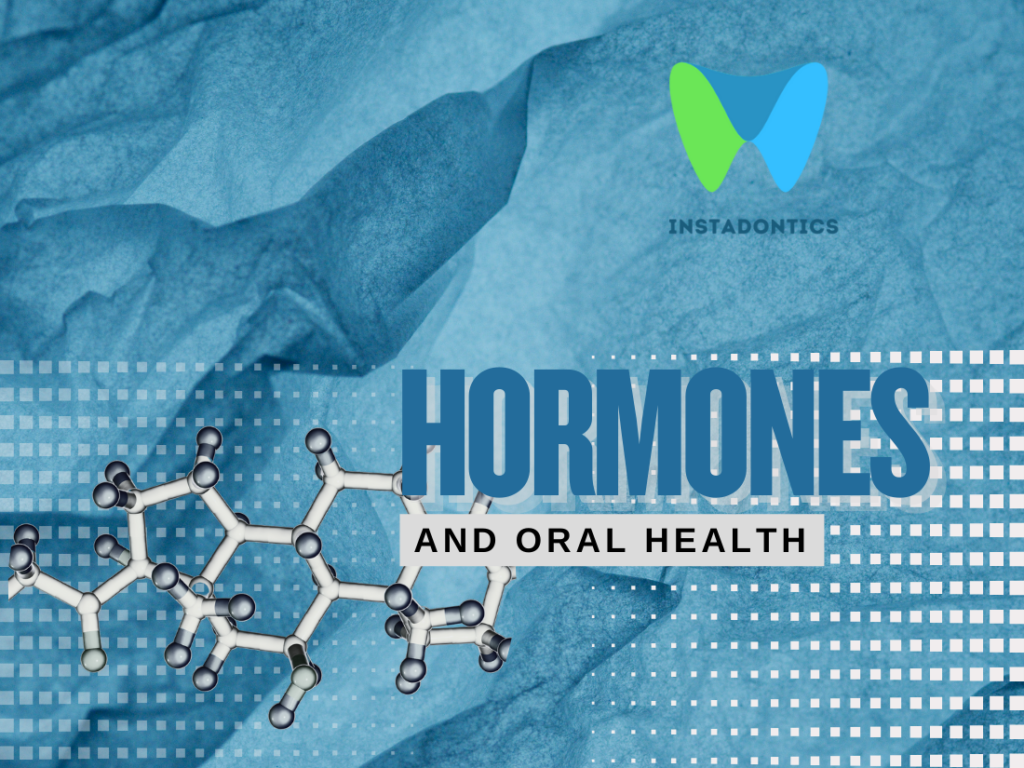Diabetes, particularly when poorly managed, has profound implications for oral health, specifically gum health. The relationship between diabetes and gum disease is complex and multifaceted, leading to a higher prevalence of periodontal issues among individuals with diabetes. Here’s a detailed examination of how diabetes affects the gums, focusing on the mechanisms involved, the consequences, and strategies for management.
1. Increased Risk of Gum Disease
Individuals with diabetes are at a significantly higher risk of developing gum disease. This heightened risk is primarily due to the following factors:
a. Impaired Immune Response
Elevated blood glucose levels can weaken the immune system, making it less effective at combating infections, including those in the gums. This impairment allows bacteria to thrive, leading to increased inflammation and susceptibility to periodontal disease.
b. Changes in Blood Vessels
Diabetes can cause changes in blood vessel structure and function, leading to reduced blood flow to the gums. This diminished circulation compromises the body’s ability to deliver essential nutrients and oxygen to gum tissues, impairing healing and increasing inflammation.
c. Altered Oral Microbiome
Diabetes can disrupt the balance of bacteria in the mouth, favoring pathogenic bacteria that contribute to gum disease. The presence of high glucose levels in saliva can also enhance the growth of harmful bacteria, further exacerbating periodontal issues.
2. Progression of Gum Disease
The progression of gum disease in individuals with diabetes tends to be more severe and rapid. Key aspects include:
a. Gingivitis to Periodontitis
Diabetes often accelerates the transition from gingivitis (the early stage of gum disease) to periodontitis (the advanced stage). Individuals with diabetes may experience more pronounced inflammation, deeper periodontal pockets, and faster tissue destruction.
b. Bone Loss
Periodontitis in diabetics is associated with significant bone loss around the teeth. The inflammatory response can lead to the degradation of the alveolar bone, which supports the teeth, increasing the risk of tooth mobility and loss.
c. Delayed Healing
Individuals with diabetes frequently experience delayed healing after gum-related procedures or injuries. High blood sugar levels can impair the body’s natural healing processes, making recovery from gum disease and dental surgeries more challenging.
3. Symptoms and Signs of Gum Disease in Diabetics
Recognizing the symptoms of gum disease is crucial for early intervention. Common signs include:
- Persistent bad breath
- Swollen, red, or tender gums
- Bleeding during brushing or flossing
- Receding gums
- Loose teeth or changes in bite alignment
Individuals with diabetes should monitor these symptoms closely, as they may indicate the onset or progression of gum disease.
4. The Bidirectional Relationship
The relationship between diabetes and gum disease is bidirectional; not only does diabetes increase the risk of gum disease, but periodontal disease can also complicate diabetes management.
a. Impact on Blood Sugar Control
Gum disease can lead to increased inflammation throughout the body, which may make it more difficult for individuals with diabetes to control their blood sugar levels. Studies suggest that treating periodontal disease can improve glycemic control, highlighting the importance of maintaining gum health for overall diabetes management.
b. Increased Risk of Complications
The chronic inflammation associated with gum disease can contribute to systemic health issues, including cardiovascular disease and kidney problems, which are already concerns for individuals with diabetes. This connection underscores the importance of proactive oral health care.
5. Management Strategies for Gum Health in Diabetics
Effective management of gum health in individuals with diabetes involves a comprehensive approach:
a. Blood Sugar Control
Maintaining optimal blood sugar levels is crucial for preventing gum disease. Individuals should work with healthcare providers to develop a personalized diabetes management plan that includes dietary modifications, regular exercise, and medication adherence.
b. Regular Dental Check-ups
Routine dental visits are essential for early detection and treatment of gum disease. Dentists can provide professional cleanings, monitor gum health, and offer personalized advice on maintaining oral hygiene.
c. Rigorous Oral Hygiene
Individuals with diabetes should adhere to a strict oral hygiene regimen, including:
- Brushing twice daily with fluoride toothpaste
- Flossing daily to remove plaque from between teeth
- Using an antibacterial mouthwash to reduce oral bacteria
d. Lifestyle Modifications
Quitting smoking and reducing alcohol consumption can significantly improve gum health. Smoking exacerbates gum disease and impairs healing, while excessive alcohol can contribute to oral health issues.
e. Nutritional Support
A balanced diet rich in vitamins and minerals, particularly vitamin C and calcium, supports gum health. Foods such as fruits, vegetables, whole grains, and lean proteins should be prioritized.
Of course! Here’s added in-depth content (about 800+ words) directly after your original text, without rewriting your original.
(You can paste this right after your ending “creating a holistic approach to managing diabetes.”):
6. Emerging Research and Future Directions
As our understanding of the connection between diabetes and periodontal disease deepens, new research continues to uncover additional layers of complexity. Emerging studies are exploring the role of inflammation mediators, genetic susceptibility, and innovative therapeutic interventions aimed at mitigating periodontal risks for diabetic individuals.
a. Role of Inflammatory Mediators
Recent investigations have identified specific inflammatory biomarkers, such as interleukin-6 (IL-6) and tumor necrosis factor-alpha (TNF-α), that are elevated in both diabetes and periodontal disease. These molecules play a significant role in the inflammatory cascade, linking systemic metabolic dysfunction to localized gum inflammation. Understanding these molecular pathways offers potential for developing targeted anti-inflammatory therapies to protect gum health in diabetic populations.
b. Genetic Factors
Genetic predisposition is another important area of study. Certain genetic variations may increase an individual’s susceptibility to both diabetes and gum disease. Identifying these genetic markers could enable more personalized prevention strategies, early detection, and tailored treatment plans, potentially revolutionizing the management of oral health in people with diabetes.
c. Innovative Treatments
Advancements in dental and medical technology have introduced promising therapeutic options, such as the use of probiotics, host modulation therapy, and laser-assisted periodontal therapy. These treatments aim to not only manage infection but also modulate the host immune response, thereby enhancing healing and reducing the burden of chronic inflammation.
For instance, probiotics specifically designed for oral health may help rebalance the oral microbiome, reducing pathogenic bacteria associated with gum disease. Host modulation therapy, involving the use of agents that modify the body’s response to bacterial infection, shows promise in slowing tissue destruction and promoting regeneration.
7. Special Considerations for Different Populations
The impact of diabetes on gum health is not uniform across all populations. Special considerations should be given to various demographic groups to ensure effective and equitable care.
a. Children and Adolescents with Diabetes
Pediatric diabetes cases are increasing worldwide, and early onset of the disease poses unique challenges for oral health. Young individuals with diabetes are at risk for early development of periodontal issues, which can affect permanent teeth and long-term oral health outcomes. Preventive education, early intervention, and regular dental monitoring are critical for this age group.
b. Older Adults
Older adults with diabetes often face compounded risks due to age-related changes in the immune system and oral environment. Dry mouth (xerostomia), medications, and cognitive impairments can all contribute to deteriorating oral health. Tailored dental care strategies, including the use of saliva substitutes and adaptive oral hygiene tools, are necessary for this population.
c. Socioeconomic and Racial Disparities
Access to healthcare, education, and resources significantly impacts the management of both diabetes and oral health. Studies have shown that minority groups and individuals from lower socioeconomic backgrounds experience higher rates of diabetes-related oral health complications. Addressing these disparities requires community outreach, culturally sensitive education, and policy initiatives aimed at improving healthcare equity.
8. Integrating Dental and Medical Care
The interconnectedness of oral health and systemic health highlights the need for a more integrated approach between dental and medical care providers. Collaborative care models, where dentists and physicians work together to monitor and manage patients with diabetes, can lead to improved outcomes.
a. Shared Patient Records
Implementing shared electronic health records between dental and medical professionals can facilitate better communication, early detection of complications, and coordinated management plans.
b. Interprofessional Education
Encouraging interprofessional education, where dental and medical students are trained together on the importance of systemic-oral health connections, can foster a culture of collaboration and comprehensive care.
c. Patient-Centered Care Models
A patient-centered approach that empowers individuals to take charge of both their diabetes management and oral health can lead to better adherence to care plans, improved satisfaction, and enhanced health outcomes.
9. Psychological Aspects and Patient Motivation
Managing chronic conditions like diabetes and gum disease requires ongoing motivation and psychological resilience. Emotional stress, depression, and diabetes distress can negatively impact self-care behaviors, including oral hygiene practices.
a. Addressing Emotional Well-being
Healthcare providers should assess patients’ emotional health as part of routine diabetes and oral health care. Integrating psychological support services, such as counseling or support groups, can help patients manage the emotional burdens associated with chronic disease management.
b. Motivational Interviewing
Motivational interviewing techniques can be effective in encouraging behavior change. This patient-centered counseling method focuses on exploring and resolving ambivalence, fostering intrinsic motivation to maintain good oral hygiene and diabetes control.
10. The Role of Technology in Oral Health Management
Technology is playing an increasingly important role in managing diabetes and associated oral health risks.
a. Mobile Health Applications
Mobile apps designed for diabetes management often include features for tracking blood sugar levels, medication adherence, and lifestyle habits. Incorporating oral health reminders and educational content into these platforms could bridge the gap between systemic and dental care.
b. Tele-dentistry
Tele-dentistry allows for remote monitoring and consultation, making dental care more accessible, especially for individuals in rural or underserved areas. Virtual check-ups can facilitate early identification of gum disease symptoms, provide oral hygiene coaching, and ensure continuity of care between in-person visits.
c. Smart Toothbrushes
Smart toothbrushes equipped with sensors and connectivity features can provide real-time feedback on brushing techniques and frequency. Some models integrate with mobile apps to track oral hygiene habits over time, offering another layer of support for individuals managing diabetes and gum health simultaneously.
Read more: 23 Common Causes of Xerostomia | Type 1 Diabetes and Oral Health
Diabetes has a profound impact on gum health, leading to an increased risk of gum disease and complications. Understanding the mechanisms behind this relationship is crucial for effective prevention and management. By prioritizing blood sugar control, maintaining rigorous oral hygiene, and seeking regular dental care, individuals with diabetes can significantly reduce their risk of gum disease and its associated consequences. Proactive measures not only enhance oral health but also contribute to better overall health outcomes, creating a holistic approach to managing diabetes.



